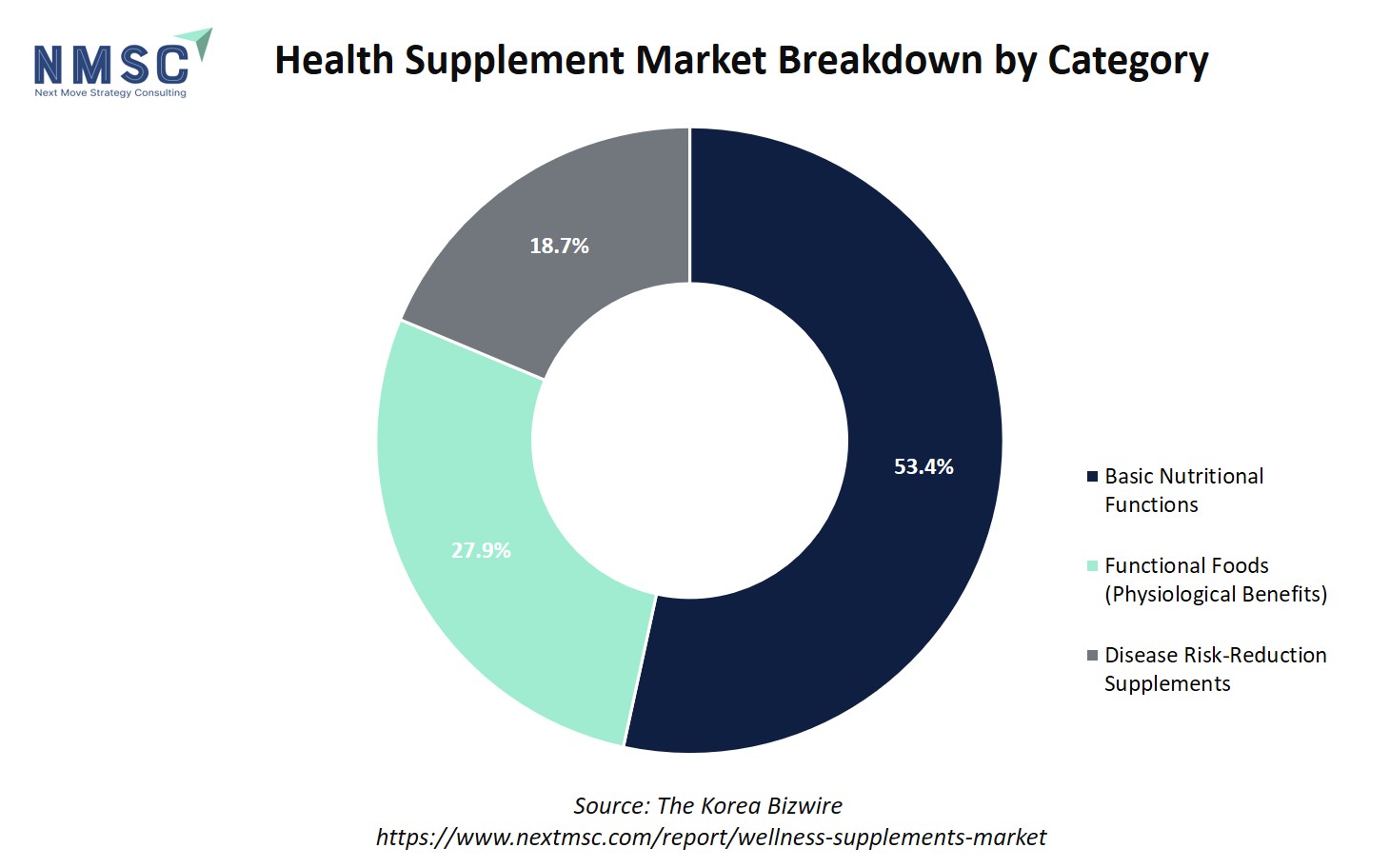Wellness Supplement Trends and Scientific Insights
Published: 2025-09-10

Wellness supplements have become a cornerstone of modern health routines, with millions of consumers worldwide turning to products that promise everything from improved immunity and mental clarity to enhanced physical performance. As demand rises for functional foods and nutritional aids tailored to individual health goals, questions around their safety, efficacy, and regulation have come into sharper focus. Recent reports and studies are now offering deeper insights into both the promise and pitfalls of these increasingly popular wellness solutions.
FAO Report on Supplements and Functional Foods
A new report from the Food and Agriculture Organization of the United Nations reveals that consumers in numerous countries are increasingly incorporating food supplements and functional or health foods into their diets to enhance personal health and well-being.
The report, Food Safety in Personalized Nutrition: A Focus on Food Supplements and Functional Foods, examines emerging safety concerns associated with these products. It offers a comprehensive overview of key food safety issues, including potential interactions with medications, proper dosage guidelines, and the importance of evaluating the safety of ingredients without a prior history of consumption.
The Rise of Supplements and Functional Foods
-
The report defines food supplements as products that contain concentrated sources of nutrients designed to complement an individual's diet.
-
Functional foods are described as those that provide health benefits beyond basic nutritional value.
-
When produced and consumed responsibly, both food supplements and functional foods have the potential to support public health objectives.
-
However, the scientific evidence supporting many health claims remains insufficient or inconclusive.
-
The report highlights shifting consumer behaviors and perceptions related to these products.
-
It emphasizes the increasing impact of supplements and functional foods on consumer purchasing choices and overall health and wellness attitudes.
-
Ensuring consumers have access to reliable, science-based food safety information is essential for promoting informed decisions and building trust in these products.
-
Further research is necessary to validate health claims and ensure transparency and accuracy in the information provided to consumers.
Advancing Safety and Innovation in Personalized Nutrition
As scientific and technological progress continues to expand the potential of personalized nutrition, the market for food supplements and functional foods is poised for significant growth. Safeguarding public health through proactive, inclusive, and evidence-based safety measures is essential—not only to protect consumers but also to support ongoing innovation in the sector.
To this end, the FAO promotes collaboration and knowledge-sharing to help countries establish effective regulatory frameworks. These efforts aim to ensure that safety concerns do not overshadow potential health benefits, while also fostering equitable access to scientific insights for all.
Study Warns of Supplement Overuse Risks
A recent study published in the journal Cureus highlights the risks associated with excessive intake of three widely used dietary supplements.
Selenium
Selenium, a mineral found in Brazil nuts, organ meats, seafood, grains, and dairy products, plays a vital role in protecting the body against infections. It also helps safeguard telomeres—the protective caps on the ends of chromosomes—which are associated with aging and chronic conditions such as cancer and heart disease.
However, excessive selenium intake through supplements can cause selenosis, a condition characterized by symptoms like hair loss, brittle nails, and a metallic taste. Additional effects may include digestive discomfort, fatigue, and a garlic-like odor on the breath.
While most symptoms typically subside once supplementation stops, recovery of nail health may take longer.
Niacin
Niacin, or Vitamin B3, is frequently included in “detox” supplements and energy drinks and is often promoted for its cholesterol-lowering benefits.
However, high doses of niacin can lead to side effects such as intense facial flushing, a burning sensation on the skin, itchiness, and potentially serious liver toxicity.
These reactions are sometimes mistaken for rosacea or allergic responses—particularly among women following influencer-endorsed “cleanse” routines.
Zinc
Zinc is an essential electrolyte that supports immune function as well as skin and hair health.
However, excessive intake can lead to side effects such as skin irritation, copper deficiency, and anemia. In some sensitive individuals, it may also aggravate acne.
"Recent analyses suggest that a large portion of nutrition content on platforms like YouTube, Instagram, and TikTok lacks scientific accuracy or promotes unverified claims," the study's authors noted.
Health Supplement Market Breakdown by Category
|
Category |
Percentage of Total Revenue |
|
Basic Nutritional Functions |
53.4% |
|
Functional Foods (Physiological Benefits) |
27.9% |
|
Disease Risk-Reduction Supplements |
18.7% |
Omega-3s Enhance Strength and Brain Health, Study Finds
Omega-3 fatty acids are vital for various bodily functions, particularly supporting brain and eye health. When consumed in sufficient quantities, they have also been associated with better heart health and improved mental well-being.
Recent research now suggests that pairing omega-3 supplements with regular weight training could provide even greater health advantages.
A recent study published in Nutrients found that athletes who took omega-3 supplements while following a strength-training program showed enhanced cholesterol levels, improved markers of brain health, and, importantly, greater strength gains compared to those who did not supplement.
Omega-3s support heart health, enhance brain function, and boost physical performance.
In a randomized trial conducted in Turkey, researchers evaluated the impact of omega-3 supplementation combined with weight training. Both groups of male participants followed an identical weightlifting routine, but only one group was given omega-3 supplements.
Fifteen participants were randomly assigned to receive omega-3 supplements, while the rest formed the control group. The daily dosage of omega-3s was set at 3,150 mg, based on previous research suggesting performance-enhancing benefits at similar levels.
Both groups engaged in strength training three times a week, structured as one upper-body day, one lower-body day, and one full-body day. To reduce variability in performance, researchers maintained consistent gym conditions, including lighting, temperature, and equipment.
To further control external influences, all participants adhered to a strictly regulated diet, overseen by a certified dietitian.
Omega-3 Supplementation Yields Broad Health and Performance Benefits
By the conclusion of the trial, participants who received omega-3 supplements showed significant improvements across multiple health systems compared to the control group. Notable health outcomes included:
-
Better lipid profiles: Lower levels of LDL (“bad”) cholesterol and triglycerides
-
Reduced inflammation: Decrease in inflammatory markers
-
Enhanced antioxidant defenses: Elevated glutathione levels
-
Improved brain health indicators: Increased levels of dopamine, serotonin, or brain-derived neurotrophic factor (BDNF)
In terms of physical performance, the supplemented group also outperformed the controls, showing:
-
13.6% increase in bench press one-rep max (1RM)
-
9.7% increase in squat 1RM
-
Noticeable gains in power, speed, agility, and reaction time
"The observation of these improvements in healthy, physically active individuals indicates that omega-3 supplements may serve as a valuable performance-enhancing tool for athletes and those who train regularly," the study authors noted.
Conclusion
As the global appetite for health supplements and functional foods continues to grow, so too does the importance of scientific oversight and consumer education. The FAO’s comprehensive report underscores the need for evidence-based regulations, accurate labeling, and public access to reliable safety information—especially as personalized nutrition gains momentum.
At the same time, recent clinical studies are shedding light on both the benefits and risks associated with popular supplements. While excessive intake of nutrients like selenium, niacin, and zinc may lead to serious health complications, targeted supplementation—such as omega-3s combined with structured strength training—can deliver measurable improvements in cardiovascular, cognitive, and physical performance.
Together, these findings highlight a critical balance: innovation in nutritional science must be guided by rigorous research, transparent practices, and informed public health policies to ensure that supplements serve their intended purpose—enhancing, not compromising, individual well-being.
About the Author
 Karabi Sonowal is an experienced SEO Executive and Content Writer in digital marketing. She excels in SEO, content creation, and data-driven strategies that boost online visibility and engagement. Known for simplifying complex concepts, Karabi creates impactful content aligned with industry trends.
Karabi Sonowal is an experienced SEO Executive and Content Writer in digital marketing. She excels in SEO, content creation, and data-driven strategies that boost online visibility and engagement. Known for simplifying complex concepts, Karabi creates impactful content aligned with industry trends.
About the Reviewer
 Sanyukta Deb is a seasoned Content Writer and Team Leader in Digital Marketing, known for her expertise in crafting online visibility strategies and navigating the dynamic digital landscape. With a flair for developing data-driven campaigns and producing compelling, audience-focused content, she helps brands elevate their presence and deepen user engagement. Beyond her professional endeavors, Sanyukta finds inspiration in creative projects and design pursuits.
Sanyukta Deb is a seasoned Content Writer and Team Leader in Digital Marketing, known for her expertise in crafting online visibility strategies and navigating the dynamic digital landscape. With a flair for developing data-driven campaigns and producing compelling, audience-focused content, she helps brands elevate their presence and deepen user engagement. Beyond her professional endeavors, Sanyukta finds inspiration in creative projects and design pursuits.

















Add Comment